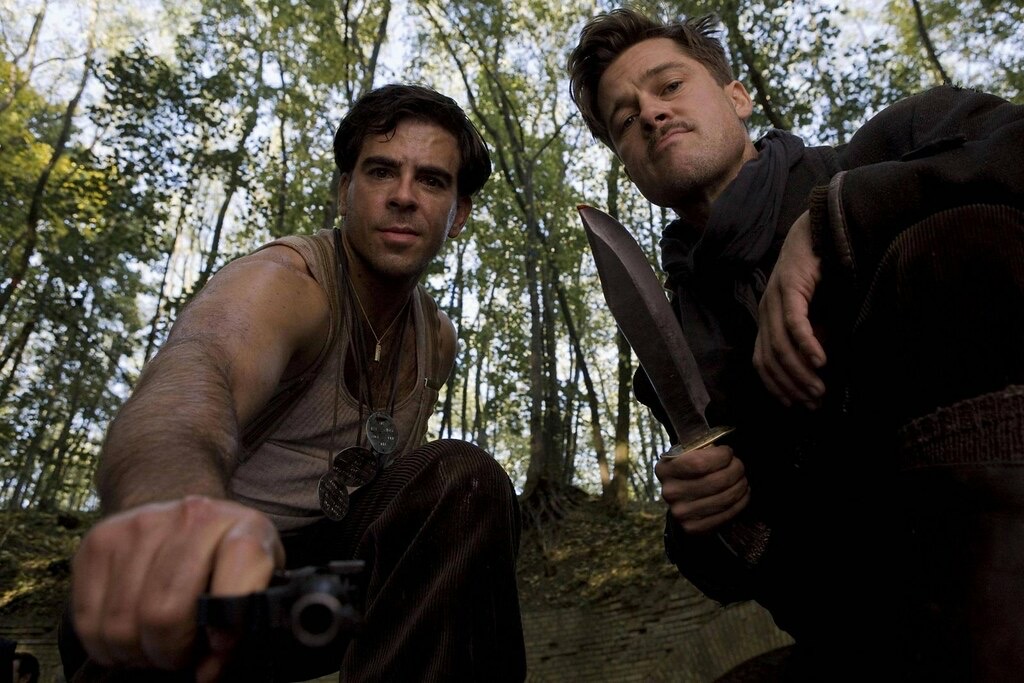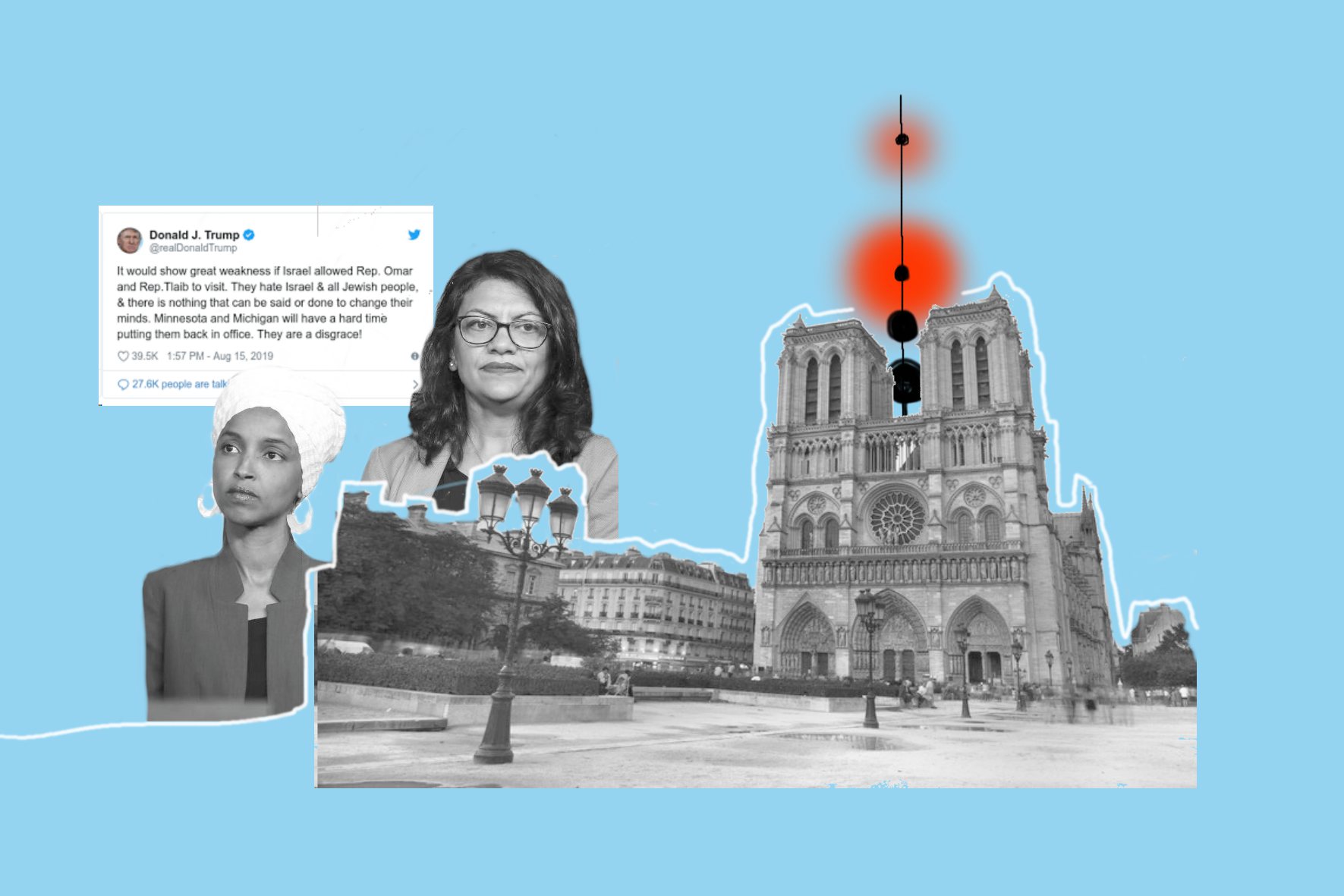
BEST BEFORE: The #Legacy of the funniest man in sports history

LeBron James’ Los Angeles Lakers are in crisis. They just got crushed in the first round of the playoffs. Their coach has been fired. The future of the greatest basketball player of our lifetimes is in doubt once again.
But LeBron added to his greatest legacy in his most unremarkable season yet. Because LeBron James is funny. He is funnier than every other transcendent athlete in the history of sports. Over his career, he has averaged 27 points per game, seven assists, and eight sideways crying-laughing emojis per tweet. He called Donald Trump “U bum.” He makes his opinions clear on the quality of his teammates’ jokes: “That was a good one. NOT.”
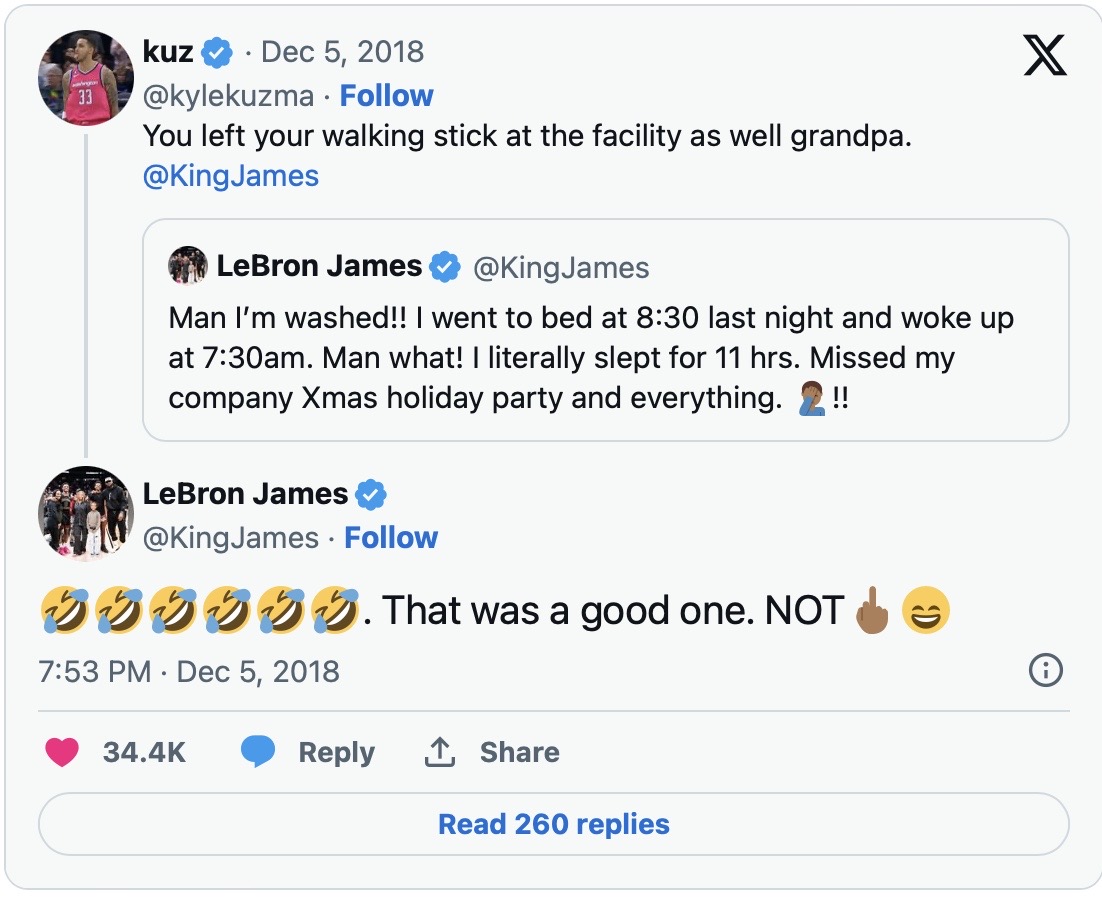
He was once not funny.
In 2010, LeBron sat in a pink-striped, button-down shirt and announced in one of the most iconic American sports quotes of the 21st century that he was “taking his talents to South Beach.” In other words, he was abandoning his hometown team he had been on for seven seasons, the Cleveland Cavaliers, to join a new superteam in the Miami Heat. He did all of this on a special program on ESPN made just for him called The Decision, but only after thirty minutes of the pointless rambling that only sports panellists on TV have mastered.
Dan Gilbert, the owner of the Cavaliers, etched these parting words in Comic Sans forevermore: “But the good news is that this heartless and callous action can only serve as the antidote to the so-called ‘curse’ on Cleveland, Ohio.” It sparked a nationwide controversy. The Yahoo! Sports website called LeBron’s actions “unnecessary, gratuitous, and ultimately disastrous.” Somehow, this was a big deal at the time, and somehow, people did not find this funny.
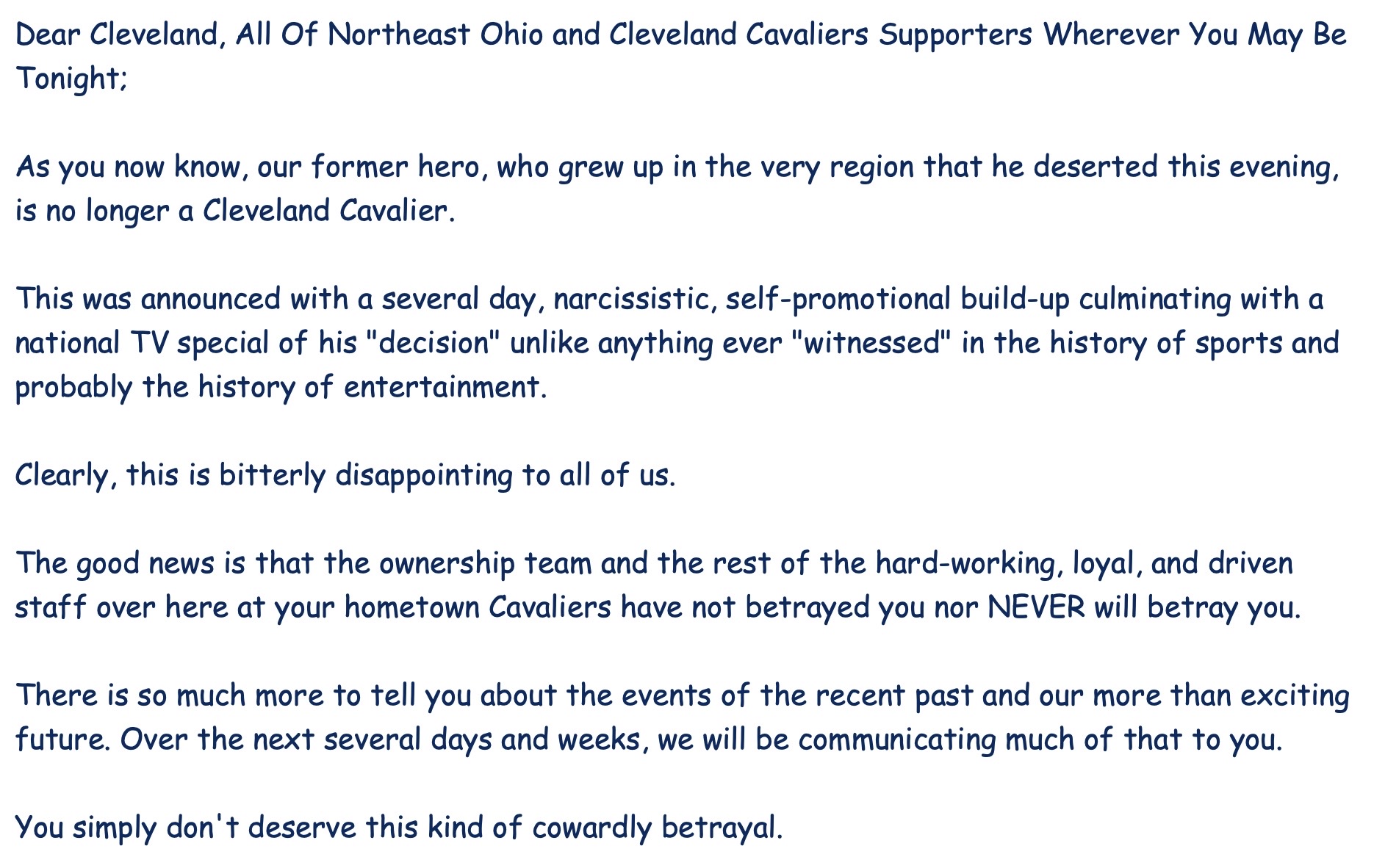
The whole affair was unprecedented in sports history. The media team was made up of his high school friends. No star athlete had ever purposefully attracted so much publicity to their new choice of team. The hype for his next season revitalised interest in the NBA. He lost the championship.
LeBron’s tenure on the Heat was not a failure—he ended up winning two championships and then (hilariously) returned to the same Cleveland team whose owner had called his original decision a “cowardly betrayal.” But the backlash to his switch and his championship losses brought out one of his funniest attributes: his insecurity.
True to form, LeBron took the corniest nickname possible—’The King’. He took this nickname before he had won an NBA championship, so mocking the new moniker was a bit too easy. Gilbert could attack “THE SELF-TITLED FORMER ‘KING,’” and LeBron’s passionate defence of his beautiful, corny nickname would colour his career.
The phrase “#WashedKing” (his aesthetic appreciation for brevity sometimes shortens “king” to a crown emoji) is a mainstay of his tweets. LeBron has had a bit of an obsession with being washed up in the later years of his career. As time has worn him down from being the greatest player in the league to simply one of the greatest, LeBron turns to the word “washed” more and more.
He’s now prone to go on X Formerly Known As Twitter, retweet a report of a good performance, and comment only “#WashedKing” (followed by a silence emoji and crown emoji, of course). LeBron knows his time as the greatest player will one day be a distant memory. He knows the finite space all mortal bodies have for physical greatness is running out for him. He knows the devastating reality that his adversaries, just entering the start of their own athletic primes, will pounce on his weakness that age brings. He knows that one day, their flash of superhuman glory that only sports can offer will too end as quickly as his did. And so he tweets #WashedKing.
Michael Jordan. Lionel Messi. Tom Brady. Some athletes transcend humanity and become icons. They become backed by the combined forces of multi-billion dollar companies and legions of adoring fans. They were once humans, but now they are ideas—concepts of greatness and strength as old as our myths—only briefly manifested in the recognizable form of a human. LeBron is not one of them.
Everything about LeBron just feels a smidge too forced. Behind Nike and the NBA’s millions of dollars of smoke and mirrors, there’s a fundamentally lame, not-so-self-assured face staring back. They can fill the airwaves with advertisements for him, they can promote his brand at every step of the year, but they cannot stop the man from posting about #TacoTuesday on his Instagram story.
The whole absurdity at the heart of sports fandom—wearing other people’s names on your backs, rabidly rooting for people you don’t know against other people you don’t know—gets exposed once viewed in LeBron’s light. In sports, all the hate that usually gets directed at an idea gets turned on a great athlete: how could you possibly do actual harm to a figure so rich and so famous? But it’s different with LeBron—you can see the psychological impact on him in real time.
Along with the inevitable hate, the psychotic cult of athletic greatness becomes clearer when it’s about LeBron. Take when LeBron (username: “kingjames”) posted on Instagram that “If you ever see me fighting in the forest with a Grizzly bear, HELP THE BEAR (crown emoji).” Fox Sports host Shannon Sharpe responded, “I’m pouring honey on you, GOAT. It’s illegal to kill a bear unless being attack [sic] (five sideways crying-laughing emojis).”
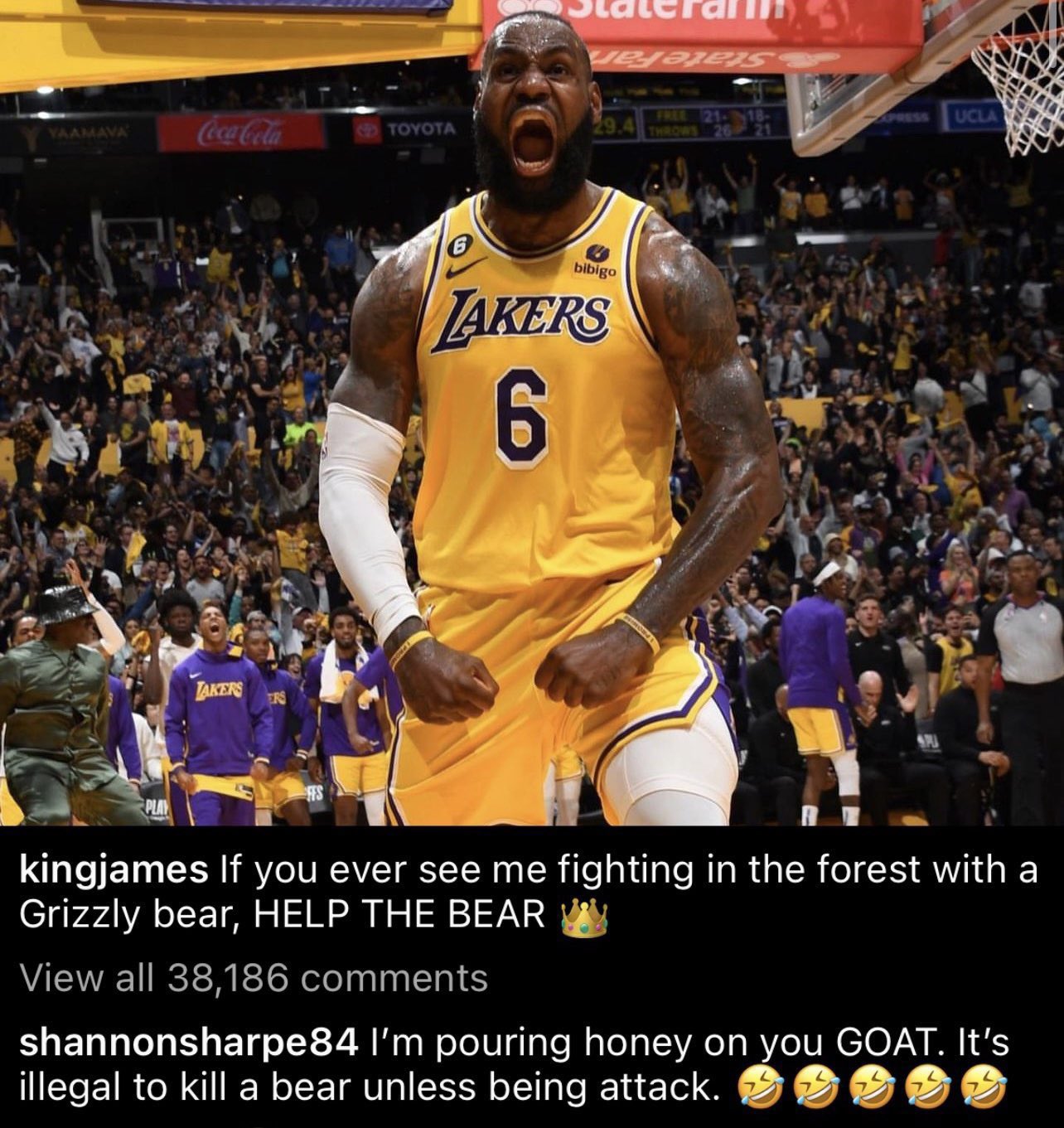
Does this insane behaviour even get noticed if it’s about non-LeBron athletes? Would we even see it as funny? Would we ever realise how much we idolise great sports players if we couldn’t see the contradiction of LeBron’s fandom and LeBron’s actual personality?
If your feed for Instagram reels or TikTok has been clogged with LeBron James, it”s not an accident. Maybe you’ve seen people calling him pookie bear or playing “You Are My Sunshine” over videos of him. Maybe you’ve seen his AI-modified voice claiming he predicted the start of World War II. You might have seen real pictures of him reading interesting books on camera before a game—the books just always happen to be opened to the first page.
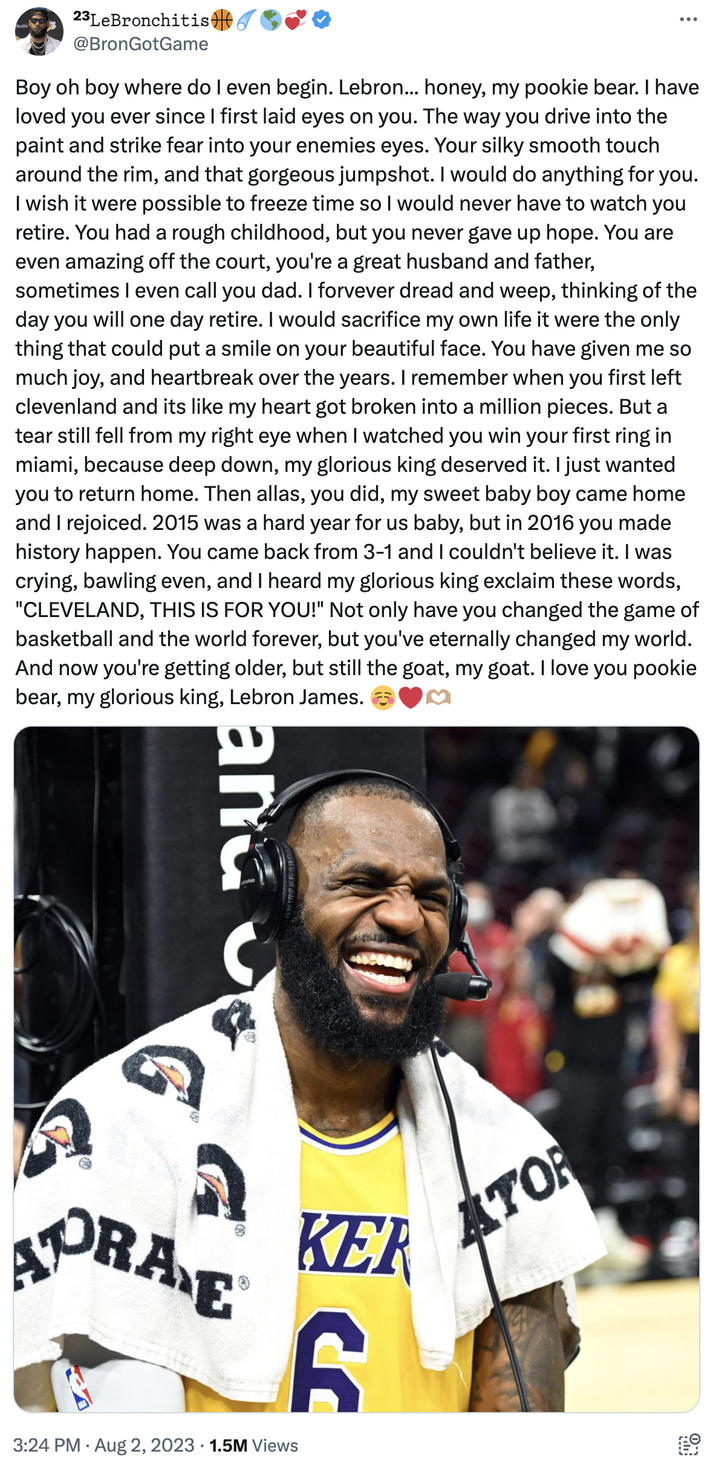
While your brain gets rotted by a thousand edited LeBron Jameses, you should remember that this is his ultimate legacy. No other great athlete has the required awkwardness to be parodied, edited, and stamped into our culture like this. LeBron wanted to be famous. He tried his hardest to project an everlasting image. He got his wish.∎

Words by Myles Lowenberg. Graphic by Alice Robey-Cave.



